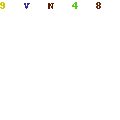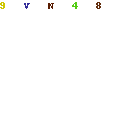
However, we already have a number of these tags inside the music files, and I'm not interested in replacing them. There's a lot of information there, which is useful. Pertinently, the MBID can be seen under MusicBrainz Release Id. If you click on any of the files and then click Details you can see all of the metadata found for that track on MusicBrainz: Now that the metadata for this release has been discovered, we can proceed to tagging the MBID. Picard now looks up the data for each file and shows it in the right-hand side: Now, click the Let It Bleed node and click Lookup. You want all of these tracks to be tagged in the same release, and that's what clusters are for. For instance Gimme Shelter features in many different releases of Let It Bleed and many, many other compilations. It is important you do it this way because, otherwise, the individual tracks will be looked up and may end up being tagged with different MBIDs for different releases. The files have now been recognised as being in one album. Deselect the file or click on the Unmatched Files node. if you have 'Unmatched Files' you must first cluster them. Don't press them! This is the first gotcha. If you click any individual file you'll see the Lookup button and other toolbar buttons all become enabled. Here, I'll add in the Rolling Stones' Let It Bleed:

You can either drag folders or files into the left-hand side space, or use the Add Files / Add Folder controls. When you start Picard you'll get a fairly empty UI:įirst, we add files for which we want to add the MBID to the left-hand side.
#MUSICBRAINZ PICARD AUTO SAVE INSTALL#
Picard is available for Windows, OS X and Linux so go download and install your copy first! Matching and clustering Furthermore, if you simply want to add MBIDs then you must follow a procedure to only store that information, otherwise other metadata may be overwritten. There are a couple of gotchas when using Picard, which need to be explained. Picard works by fingerprinting your music files and looking up data online.

#MUSICBRAINZ PICARD AUTO SAVE HOW TO#
I thought I'd follow up on my previous list of reasons for tagging MBIDs with how to actually do it! The information that can be tagged includes MusicBrainz Identifiers (MBIDs). MusicBrainz maintain their own software, Picard, for tagging music files with information from MusicBrainz.

They're useful for a number of reasons, including improving access to musical metadata you might not already have. MusicBrainz Identifiers identify musical releases, artists and more "musical entities".


 0 kommentar(er)
0 kommentar(er)
